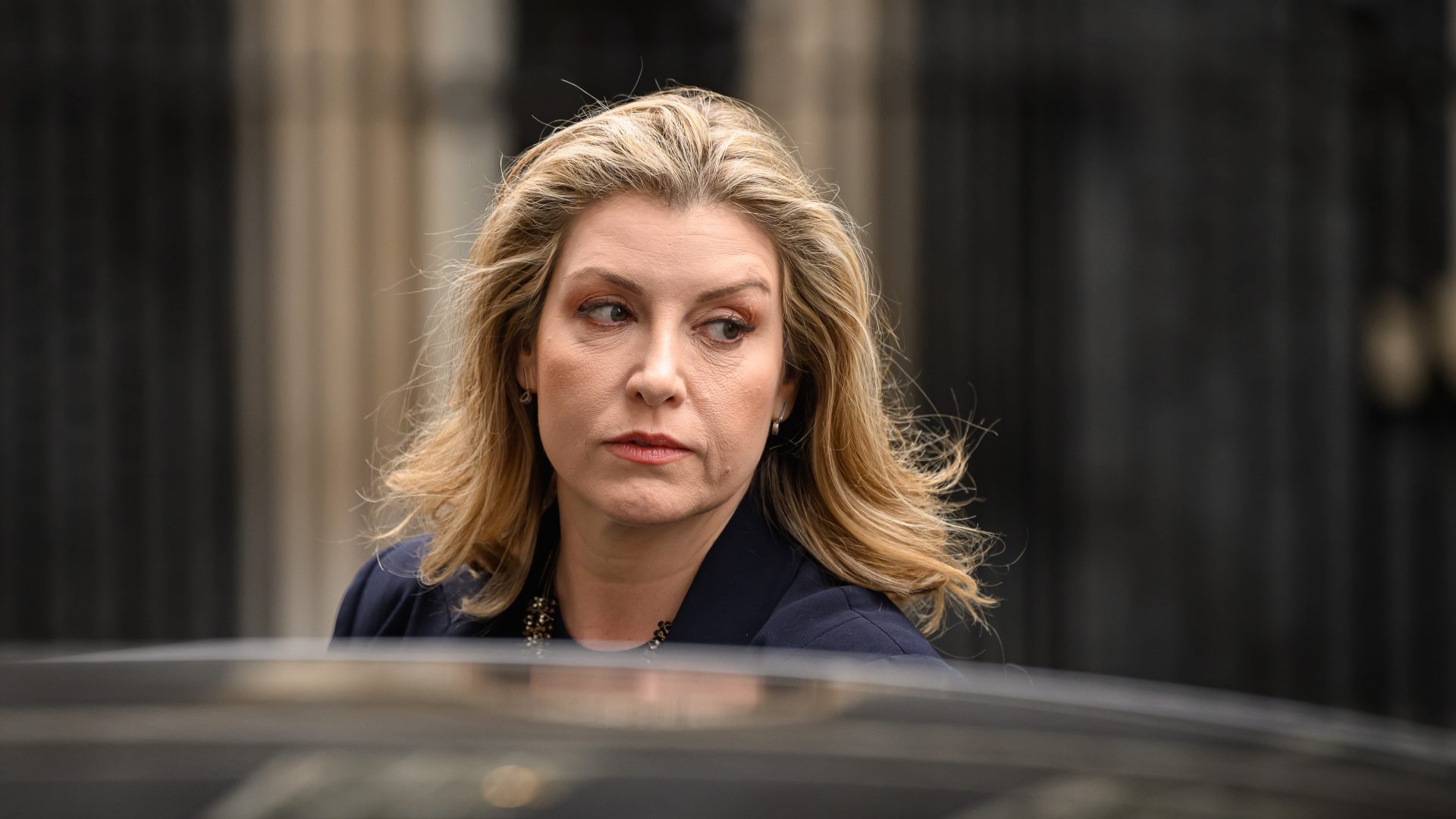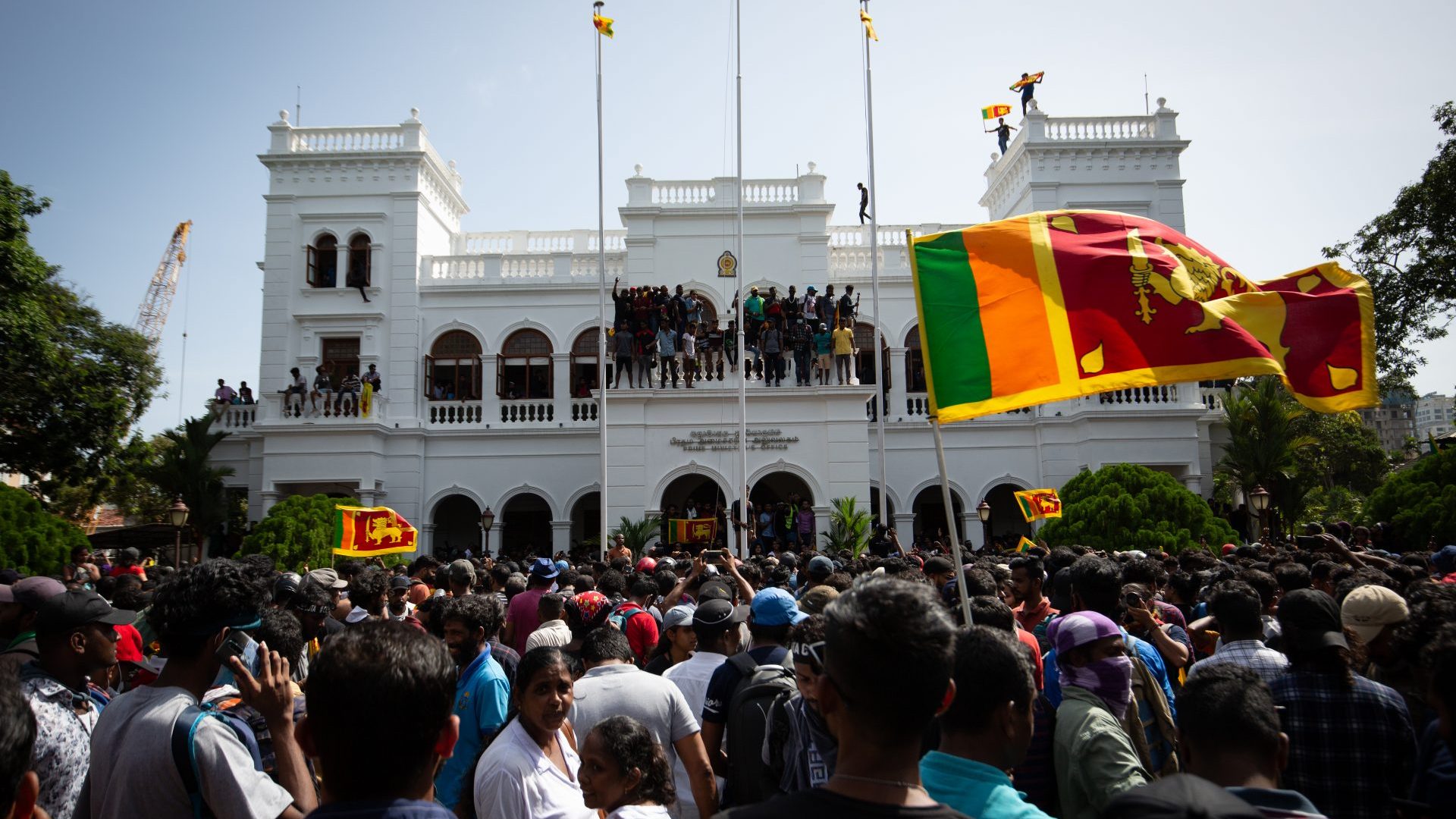After failing to get the country to rally behind Rishi Sunak and his confected war on extremism, then bigging up Lady McAlpine’s madcap plot to reinstate Boris Johnson as prime minister, the Daily Mail would now appear to see Penny Mordaunt as the Conservatives’ last best chance of clinging to power.
“God only knows what Mordaunt herself makes of our latest twist in the wind,” one old Mail staffer tells me. “We were under orders to attack her as viciously as we could when she had the temerity to run against Liz Truss in the leadership contest that followed Johnson’s departure. Truss will also be aghast, as she still of course hopes to have a second crack at being prime minister and thought she could count on us as her cheerleaders.”
The Mail’s front page over the weekend – “Plot to crown Mordaunt as PM” – galvanised opposition to Sunak within the Tory Party and to some extent instilled hope among its demoralised MPs, but it must still have stuck in the craw of Paul Dacre, the Mail’s editor-in-chief, a friend and staunch supporter of Truss. He has described her as “a toughie”, and is said to regard Mordaunt as “too woke”.
Still, the Mail pointed to a poll of Tory voters that identified Mordaunt as the only candidate who could boost the party’s chances, and quoted an unnamed former minister saying the party could unite around her without a contest – though the ambitious Kemi Badenoch would surely have something to say about that.
Sunak blames a lot of his present problems on Jeremy Hunt’s budget failing to excite anyone at all. Hunt almost certainly wouldn’t survive if Mordaunt were to take charge, and it’s not inconceivable that Sunak might choose to reshuffle him to another position before the autumn budget, just ahead of the general election, expected on October 12.
“James Cleverly and Michael Gove know nothing about macroeconomics, but Gove could at least come up with a pre-election budget that would be forensically political,” one well-informed Tory backbencher tells me. “Alternatively, Rishi could promote John Glen, who is paymaster general but has held three junior- and middle-ranking roles at the Treasury and would do Rishi’s bidding. He could maybe promote the performative and scheming Tom Tugendhat who, like Mordaunt, is actively courting MPs and Conservative associations.”
If Mordaunt succeeded Sunak ahead of the election, my man’s guess is she’d give Hunt’s job to either Tugendhat or Badenoch, whichever she perceived to be the greatest threat to her authority. Ahead of the election, the last thing she’d fret about would be economic literacy.
With the Reform Party almost £1.1m in the red, according to its latest accounts, Richard Tice must be hoping that Lee Anderson’s arrival transforms its finances.
Tice, a multi-millionaire property developer, appears to have signed off on different totals for loans provided by him to the party, the difference in monies totalling around £200,000.
According to the Electoral Commission, Tice’s city firm, Tisun Investments, has 51 loans to Reform UK outstanding – the most recent amounting to £40,000, in November.
Funds advanced up until the end of 2022 though, totalling just over £1.3m, are not reflected in Reform’s accounts – in which loans of £1,083,000 are reported, or in Tice’s business accounts, which also disclose a loan total of £1,083,000. An outfit called First Corporate Consultants gave £100,000 to Reform. It is run by Terence Mordaunt (no relation to Penny), who is also involved in the Tufton Street-based Global Warming Policy Foundation.
The machinations surrounding the sale of the Daily Telegraph are of little if any interest to one man. Sir Frederick Barclay owned the media group with the late Sir David Barclay, but it was his twin’s pet project.
Sir Frederick cared neither for the attention it brought them nor the near £1bn price they ended up paying for it. “He honestly couldn’t care less,” one of Sir Frederick’s associates responded when I inquired if he had a preferred bidder for the Telegraph.
Now 89, Sir Frederick fell out with both his brother and his own wife, Hiroko, who is fighting him in the courts for £100m after the breakdown of their 34-year marriage. One of the few passions Sir Frederick shared with his late twin was watching endless re-runs of the television series Dad’s Army.
Sir David once told me that for him and his brother the series symbolised what Brexit was all about: a plucky little country holding its own against the world. Sir David wasn’t amused when I told him that Arthur Lowe – aka Captain Mainwaring in the series – consented to his image being used on posters in support of the “Yes” campaign in the 1975 European Communities membership referendum.
Frank Hester may have bought himself more than £10m worth of friends in the Tory government, but has he any on the planning committee of his local council in Leeds? The racist and homicidal Tory donor – who said he wanted to see Diane Abbott shot – has been waiting for planning approval for three years after submitting an application to build a triple garage in the grounds of his Leeds home and also to redevelop a five-property parcel of land adjacent to it.
His pad is within walking distance of TPP Group, through which Hester provides “computer software and support to the health sector”. He took a reported £33.5m in dividend pay between 2019 and 2023, his firm bagging £400m of NHS contracts.
After advising Boris Johnson on transport issues, Andrew Gilligan is now advising Rishi Sunak on how to attack Keir Starmer. It is 20 years since Gilligan, a former Labour Party activist, left the BBC after the spectacular row over his broadcast on the “dodgy” chemical weapons dossier on Iraq. A mixed career followed, including on newspapers and a stint on Iran-funded channel Press TV.
“It was Gilligan who last year persuaded Sunak to scrap HS2 from going north of Birmingham,” says my source. “Now he is digging around on behalf of the beleaguered PM for attack lines to use against Starmer.”
I understand Sunak’s PMQs barb that the Labour leader had represented an extremist Islamic group was one of Gilligan’s. In fact Starmer, a human rights lawyer in 2008, was part of a team appealing on behalf of Pan-Islamicist organisation Hizb ut-Tahrir at the European Court of Human Rights over a ban in Germany. But not long afterwards Starmer, as director of public prosecutions, oversaw the first prosecutions against the very same Hizb ut-Tahrir.
I don’t envy Gilligan the job of digging the dirt on Starmer. The smuttiest story Tom Baldwin could find for his new biography was that he once lived above a knocking shop. As for Gilligan himself, there’s maybe more to be said. In his newspaper years, he was notoriously caught on CCTV “comforting” himself on a sofa in the office of Dominic Lawson when he was editor of the Sunday Telegraph.




